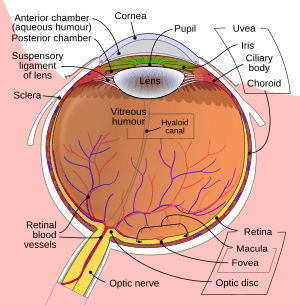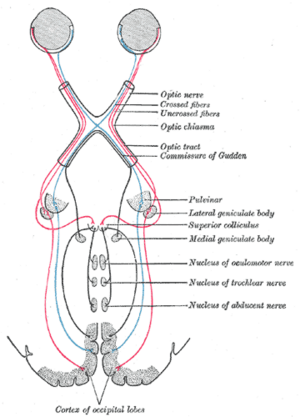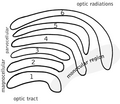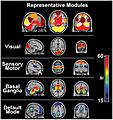Visual system facts for kids
The visual system is a special part of your nervous system. It helps you see the world around you! It takes information from light and turns it into a picture in your brain. This system has a big job: it builds a 3D image of the world from the 2D images that hit your eyes. What you see and understand is called visual perception.
How We See: The Visual System's Parts
This article mainly talks about how mammals see, like humans. Other animals also have similar ways of seeing. To understand how we see, let's look at the main parts of the visual system:
- The eye, especially the retina at the back of it
- The optic nerve, which carries messages from the eye
- The optic chiasma, where some nerve fibers cross over
- The optic tract, a pathway for visual information
- The lateral geniculate nucleus, a relay station in the brain
- The optic tectum (also called the superior colliculus), which helps control eye movements
- The optic radiation, more pathways to the brain
- The visual cortex, the main part of the brain that processes vision
- The visual association cortex, which helps make sense of what we see
Seeing Beyond Human Vision
Did you know that different species can see different parts of the light spectrum? For example, bees can see ultraviolet light, which humans cannot. This helps them find flowers. On the other hand, pit vipers can "see" infrared light. This allows them to find warm prey even in the dark!
Images for kids
-
S. Ramón y Cajal's drawing of the Structure of the Mammalian Retina, 1900
-
Visual cortex: V1; V2; V3; V4; V5 (also called MT)
See also
 In Spanish: Sistema visual para niños
In Spanish: Sistema visual para niños
 | Charles R. Drew |
 | Benjamin Banneker |
 | Jane C. Wright |
 | Roger Arliner Young |








